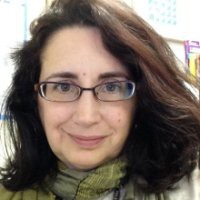“I’m so many people.” When Mad Men creator Matt Weiner put these words into the mouth of protagonist Don Draper’s teenage daughter Sally, he could have been speaking for all of us.
From the moment we graduate college, and often earlier, we are coached to put our best face forward, showing the side of ourselves that is most marketable to potential employers. The problem is, showing just one side can make us look — and feel — pretty one-dimensional at times.
As we evolve as professionals and as human beings, the many “people” inside of us compete more aggressively to be seen and heard. I’m not talking about a Sybil-like scenario with true multiple personalities, but rather the chameleon-like qualities that allow us to adapt and contribute, on and off the job.
The question is, when it comes to job-search protocol, how can we showcase the best of our many sides without deviating too far from the script? I’ll start by sharing my own multiple dimensions and how they have contributed to my professional identity, and invite others to do the same.
PTA Mom — With my son about to finish middle school, I’ve logged thousands of hours between two schools since he was five. Through this experience, I have met some of the most interesting and accomplished individuals in my lifetime, many who have become dear friends. Moreover, it has challenged — and ultimately strengthened — my leadership abilities more than 20-plus years of professional managerial roles.
Daughter and Parent Advocate — About 15 years ago, when my own recruiting business was at its peak, both of my parents became seriously ill in the space of six months. Over the next decade, my magnificent mother lost her life to a rare and wretched form of blood cancer, while my father endured a series of progressively debilitating strokes that left him unable to speak for himself. As an adult only child and a new parent myself, I was suddenly navigating unfamiliar and terrifying territory both medical and logistical. I had to put aside my own emotions, which ranged from devastating sadness to resentment at the overnight role reversal. While learning to apply the kind of rigor and persistence that felt more familiar in a business context to increasingly complex medical issues, my ultimate lessons were all about grace and acceptance.
Volunteer Career Navigator — Years of supporting and advocating for my parents highlighted my preference for directly helping individuals. As a search consultant, while I truly cared about the well being of candidates, my primary allegiance, by definition, was to the employers that hired them. My evolution into career counseling felt organic and put a name on what I had been doing informally for the past two decades. Before making the leap, I tested out this premise by volunteering with a local non-profit providing a range of supportive services to women in transition. I ultimately chose to work with a population of college students, many of them first generation, and this experience was contributory.
Lifelong Learner — While this one might sound cliché, I’ve earned the designation. Returning to school at 50 to earn an advanced degree in higher education counseling, complete with internships, after years of running my own show and speaking and writing as an industry expert, was both affirming and humbling. It led to my choosing employment at a college career center versus counseling students as an independent practitioner, yet another learning experience, and one that also allows me to contribute knowledge from my recruiting background.
Relationship Builder — In a professional context, relationship building is often code for business development. While I have done my share of this successfully as a business consultant, it is the personal relationship building that better defines me. From a 31-year marriage to real and enduring friendships across geographies, jobs, neighborhoods and volunteer experiences, relationships remain my most deeply held value.
Bringing this back to job search, I recently had the chance to bring all of these “people” to my own search process for my first non-internship role in higher education. This did not mean that I told these stories on every interview. What it did mean is that I kept these dimensions alive, introducing them as appropriate, when speaking about a deliberate mid-life career shift. They also informed an internal decision-making process to evaluate potential opportunities and work environments, holding out for one that would honor more than what was immediately apparent on paper. I am so fortunate to have found that.
In the case of the fictional Mad Men character, Sally Draper, life has compelled her to become “so many people” at far too early an age. One can only hope that in whatever afterworld viewers imagine after the series concludes, that she grows up to honor and integrate these dimensions into a rewarding livelihood. Personally, I’m holding out for child psychologist.
What about you? Who are your many people?

